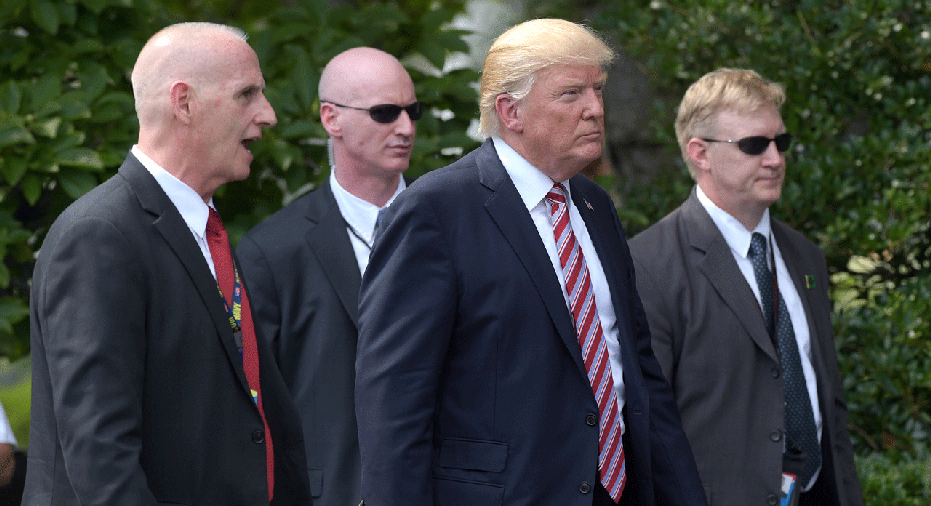Secret Service to test high-tech drone as new form of protection for Trump

The U.S. Secret Service said on Wednesday it plans to deploy a small drone during President Donald Trump's visit this month to his golf club in New Jersey as the agency considers new ways to provide protection. In a statement released Wednesday, the agency said it planned to use a small tethered unmanned aircraft system vehicle during Trump's visit this month to the Trump National Golf Club in Bedminster. The club is one of the president's favorite weekend spots and he is expected to stay there for an extended period in August.
The Secret Service said the test will help determine the potential for using such vehicles to protect the president.
The drone has electro-optical and infrared cameras to look for potential threats and is on a microfilament tether that provides power to the craft.
The agency said the drone may be within range of private residences, which could lead to unintentional privacy violations. It will notify people at the club that the premises are being monitored by a drone.
The Secret Service currently relies on local, state and federal government agencies government to provide manned aircraft for aerial surveillance. But it said manned aircraft are limited in scope, too loud and cannot provide consistent coverage.
The drone will fly autonomously at an altitude of 300 to 400 feet (90 to 133 meters), focusing on the outer perimeter of the protection zone around the golf club. Any images or video recorded will be overwritten within 30 days or become part of a law enforcement investigation.
The Secret Service said there is a risk that some people in range of drones may not be aware of their presence.
This year, the Massachusetts State Police used tethered drones at the Boston Marathon and other events.
Trump met in June with drone chief executives, including Kespry Inc, AirMap and Airspace Inc.
The government estimates that by 2021 the commercial drone fleet will increase tenfold to about 442,000. The Obama administration implemented rules opening the skies to low-level small drones for education, research and routine commercial use.
The Trump administration is considering allowing a sweeping expansion in drone use for purposes such as deliveries where aircraft would fly beyond the sight of an operator.



















